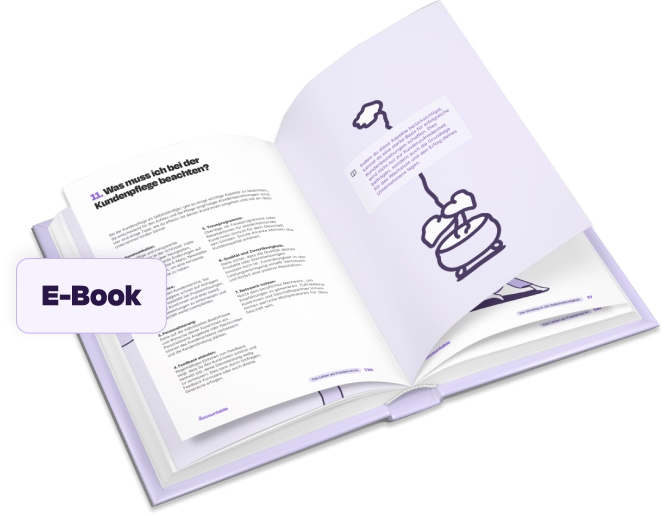As a freelancer or self-employed professional in Germany, you're probably on the road quite a bit - meeting clients, attending events, or working on-site. All those business trips can rack up expenses, and knowing how to track and claim them properly is key.
In this article, we’ll walk you through how to handle travel expense claims as a freelancer or self-employed person, and what steps you should take to make sure everything is done right, both for your own records and for the Finanzamt (tax office).
Always remember that as a freelancer, you can only claim expenses that are directly related to your work. So it's important to clearly separate business from personal costs, as only work-related travel expenses are tax-deductible.
Here are the typical types of travel expenses you can claim:
You see, travel expenses can be tax-deductible, but only under certain conditions. As a freelancer or self-employed person, you can deduct business-related travel costs from your taxes if the following requirements are met:
To stay on top of the latest tax rules and per diem rates, it helps to use a tool like Accountable. The tax app lets you easily upload and store receipts, track travel expenses, and the Accountable tax coaches and AI tax advisor even help answer questions about what you can deduct.
That way, you’re not only staying organized, you’re also making sure you’re claiming everything you’re entitled to, without the stress. Because if the tax office ever asks for proof, you'll want to have all your documents in order.
The Verpflegungsmehraufwand, or per diem allowance for meals, is a key part of travel expense deductions for freelancers and self-employed professionals. It covers the extra costs you typically have for food while you're away on a business trip.
As a freelancer, you can usually claim this allowance as a tax-deductible expense, as long as certain conditions are met.
The amount you can claim depends on how long you're away and where you're traveling to. Instead of keeping every single meal receipt, you can simply use a flat-rate per diem, which is officially recognized by the tax office and doesn't require itemized proof. These per diems are meant to reflect the typical daily cost of meals while traveling for work.
As of now, the standard rates in Germany are:
💡 Tip from Accountable: The official per diem rates are set by the German Ministry of Finance and may change each year. To make sure you're claiming the correct amount, always check the latest rates, or use an app like Accountable, which keeps track of current rules and helps you file everything properly.
Follow these six simple steps to properly track and deduct your travel costs:
You can use this free and basic PDF template for your travel expense report here. It’s designed to help freelancers and self-employed professionals easily track and organize their business travel costs.
A thorough travel expense report is essential for freelancers and self-employed professionals to keep track of costs, benefit from tax deductions, and present themselves professionally to clients.
Make sure to record your expenses accurately, use a travel expense report template if needed, and deduct everything properly in your tax return. By managing your travel expenses efficiently, you’ll have a clear overview of your finances and can focus fully on your work.
20 Kapitel knallhart recherchiert und vom Steuerprofi geprüft
Kostenlos herunterladen

Author - Sophia Merzbach
Sophia has been a key member of the Accountable team for many years, bringing a unique blend of journalistic precision and in-depth tax expertise to her work.
Who is Sophia ?Thank you for your feedback!
Useful
How much income tax is deducted from your income is largely determined by your tax class. There are ...
Read moreWorking as a self-employed professional has many advantages: You are your own boss and you can choos...
Read moreWorking with international clients can be tricky, depending on where exactly they’re located, whet...
Read moreDie App ist super einfach aufgebaut. Für alle mehr als verständlich. Es gibt tolle verschiedene Optionen um Antworten zu bekommen. Wenn die KI nicht helfen kann, antworten die Steuer Coaches immer sehr schnell und sehr freundlich, so dass man direkt weiter arbeiten kann. Hab Accountable schon mehrfach weiterempfohlen.
Anonym
What I really appreciate is that you can quickly help me with my doubts about taxes, invoicing, and how to do things right in Germany. I've never been freelance and I am not German, so for my this support is crucial, especially because it's so hard to find an advisor in Berlin that I was almost going to give up, but I am happy I started with Accountable. The only thing I would do better is to see in my dashboard the status of the application as freelance to the finanzamt, since that was done through your site and there is no connection to that in my dashboard.
Francisco Javier Aguilar Sanchez
Mein Steuercoach hat zunächst versucht meine Frage besser zu verstehen und Nachfragen gestellt. Nachdem der Sachverhalt nicht direkt geklärt werden konnte, blieb man hartnäckig und hat sich mit Kollegen ausgetauscht, bis ich eine Lösung hatte. Das war genau so, wie ich es mir vorgestellt hatte. Bin sehr zufrieden
Michael Hofmann
Ich bin echt begeistert von Accountable.
Anonym
Ich hatte ein Problem mit dem Importieren von Eingangsrechnung (Fahrtkosten). Die Aufgabe hat Anahita übernommen und gelöst. Mein Problem wurde ernst genommen, sie hat Kontakt gehalten und schlussendlich wurde es von der IT gelöst. Vielen Dank.
Heinz Wiemers
Simon gave me a quick response and explained everything very kindly and clearly. I really appreciate his excellent customer support.
Yuki Shiroi
super einfach , Unterstützung von jede Seite ! Ki super gut ! TOP !
Alexander Abel
Ich liebe die Einfachheit, die KI-Unterstützung und dass ich schnell Rückmeldung erhalte:).
Anonym
Hallo! Also ich muss sagen, ich bin so so so positiv überrascht wie hilfsbereit das Accountable Team ist und wie ambitioniert mir bis jetzt geholfen wurde. Sowas habe ich noch nie erlebt :> Ich werde die App weiterhin gerne nutzen. Lg Kristin Speck
Kristin Speck
Ich bin froh, dass es Euch gibt! Bisher war mir Euer Programm nützlich und die Betreuung durch Euch ist recht gut! herzlichen Dank!
Semjon H. N. Semjon